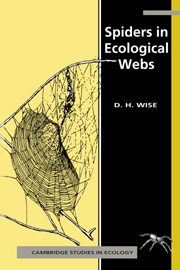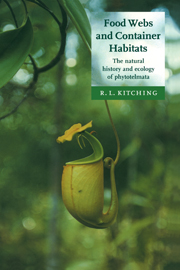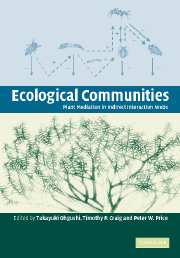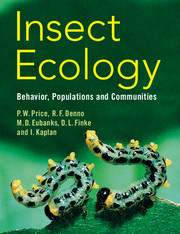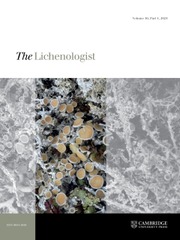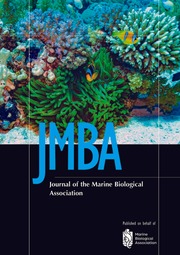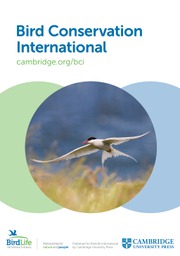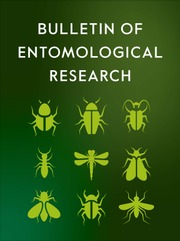Spiders in Ecological Webs
As experimental organisms, spiders offer ecologists a unique opportunity to examine the concept of the ecological community and the role which field experimentation can play in evaluating theories of population and community ecology. In this book, David Wise provides a balanced critique of field experiments designed to uncover details of spider ecology, with the dual aim of clarifying the ecology of these fascinating organisms and providing insight into the advantages and challenges of performing field experiments with a predator ubiquitous in terrestrial ecosystems. This book will be an essential reference for all ecologists wishing to learn more about the ecology of a major terrestrial predator and the use of field experimentation as a powerful technique to test ecological hypotheses.
- Of interest to all concerned with field experimentation
- In the well-established series Cambridge Studies in Ecology
- Attractive new cover design for series - second FTPB in series
Product details
January 1995Paperback
9780521310611
344 pages
228 × 152 × 20 mm
0.524kg
63 b/w illus.
Available
Table of Contents
- Preface
- Acknowledgements
- 1. The spider in the ecological play
- 2. Hungry spiders
- 3. Competitionist views of spider communities
- 4. Failure of the competitionist paradigm
- 5. How spiders avoid competition
- 6. Impact of spiders on insect populations
- 7. Anchoring the ecological web
- 8. Untangling a tangled web
- 9. Spinning a stronger story
- References
- Index.

